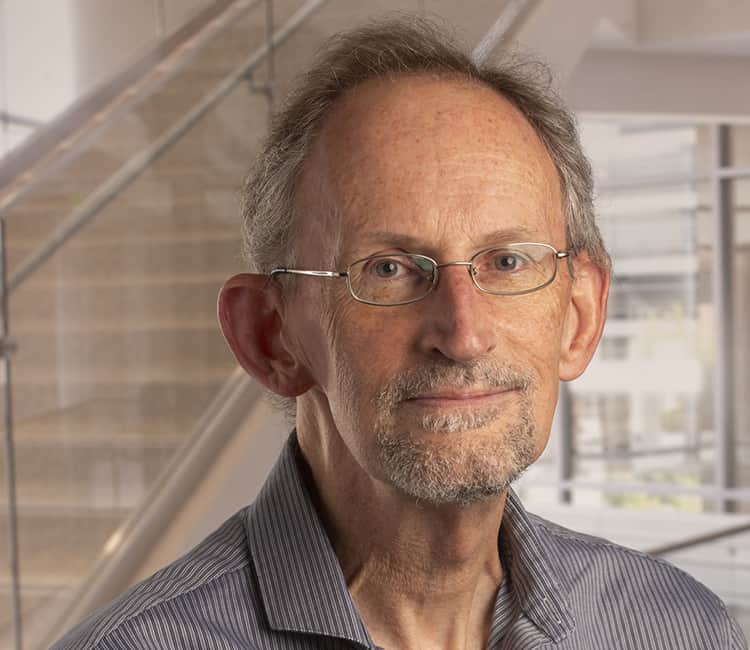UAMS Researcher Cannon Awarded Nearly $1 Million to Study Vaccination Against Ovarian Cancer
| LITTLE ROCK —Martin J. Cannon, Ph.D., a professor at the University of Arkansas for Medical Sciences (UAMS), has been awarded an Ovarian Cancer Research Alliance (OCRA) grant of $900,000 to study dendritic cell vaccination against ovarian cancer.
A dendritic cell is a unique immune cell that boosts immune responses by displaying antigens such as toxins or other foreign substances on its surface, triggering other immune cells such as T cells and antibody-producing B cells to respond against the antigens.
The vaccines are a type of immunotherapy that harnesses the body’s germ-fighting immune system to both detect and attack any cancer cells that may return after the completion of initial treatment.
“We are thrilled to support this groundbreaking project, whose findings will further our understanding of this complicated disease, and bring us closer to a world where no one needs to fear an ovarian cancer diagnosis,” said Audra Moran, president and CEO of OCRA, in announcing several grants totaling $4.3 million awarded to 16 scientists at 14 medical centers internationally.
Cannon’s collaborative research development grant supports a partnership between UAMS serving as the lead institution, joined by the University of Pennsylvania in Philadelphia, Pennsylvania, and MD Anderson Cancer Center at the University of Texas in Houston, Texas. The grant began in January and runs through 2023.
Cannon is a professor of immunology in the Department of Microbiology and Immunology and the Department of Obstetrics and Gynecology in the UAMS College of Medicine. His research, spanning more than 15 years, focuses on novel strategies for dendritic cell vaccination. Throughout the last decade, dendritic cell-based anti-tumor vaccines have proven to be a safe therapeutic approach but have had inconsistent clinical results.
“This award will support the development of an integrated and multi-faceted program to target immune suppression using blood cells in the ovarian tumor microenvironment,” said Cannon. “We hope our work will improve responses to immunotherapy, including dendritic cell vaccination.”
While research has shown that ovarian cancer vaccines and immunotherapies may hold promise, it has not yet been determined whether these treatments, which are designed to prevent the recurrence of ovarian cancer, work.
The standard primary treatment for ovarian cancer is still surgery followed by chemotherapy. More studies are necessary to determine the potential role immunotherapy may offer in preventing ovarian cancer recurrence and progression.
“The OCRA award is focused on how to overcome resistance to treatment, including dendritic cell vaccination,” Cannon said, adding that the primary purpose of his study is to learn about the role certain infiltrating immune cells within ovarian tumor, play in the progression of cancer and suppression of treatment.
“I am optimistic that we’ll reach the point where we can do this, especially with clinical trials.”
Cannon received his doctorate degree from the University of London and pursued postdoctoral research at the National Institute for Medical Research, London, and the Scripps Research Institute in La Jolla, California, before joining UAMS. Cannon has published extensively in the field of ovarian cancer research, and his work has been supported by the Department of Defense Ovarian Cancer Research Program, the Rivkin Center and the National Institutes of Health. Cannon is a member of the NIH Immuno-Oncology Research Special Emphasis Panel and has served as chair of the Department of Defense’s review panels in breast, prostate and ovarian cancer.
UAMS is the state’s only health sciences university, with colleges of Medicine, Nursing, Pharmacy, Health Professions and Public Health; a graduate school; a hospital; a main campus in Little Rock; a Northwest Arkansas regional campus in Fayetteville; a statewide network of regional campuses; and eight institutes: the Winthrop P. Rockefeller Cancer Institute, Jackson T. Stephens Spine & Neurosciences Institute, Harvey & Bernice Jones Eye Institute, Psychiatric Research Institute, Donald W. Reynolds Institute on Aging, Translational Research Institute, Institute for Digital Health & Innovation and the Institute for Community Health Innovation. UAMS includes UAMS Health, a statewide health system that encompasses all of UAMS’ clinical enterprise. UAMS is the only adult Level 1 trauma center in the state. UAMS has 3,485 students, 915 medical residents and fellows, and seven dental residents. It is the state’s largest public employer with more than 11,000 employees, including 1,200 physicians who provide care to patients at UAMS, its regional campuses, Arkansas Children’s, the VA Medical Center and Baptist Health. Visit www.uams.edu or uamshealth.com. Find us on Facebook, X (formerly Twitter), YouTube or Instagram.
###
